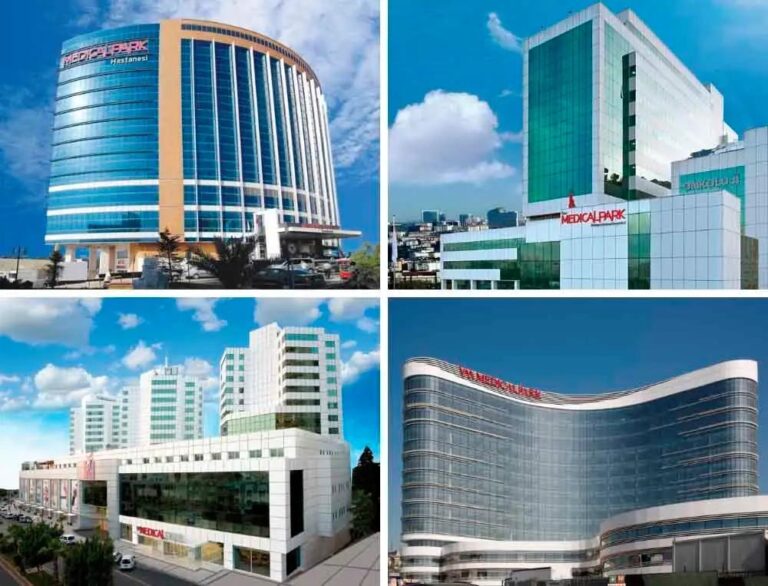TL;DR:
- Malta offers high-quality public healthcare, free at the point of use, and modern private healthcare with shorter wait times
- Public healthcare emphasizes preventive care, while private healthcare offers personalized services.
- Healthcare facilities are well-equipped, with English-speaking staff in both public and private sectors.
- General practitioners, specialists, and mental health services are readily accessible.
- Healthcare is easily accessible in urban areas; rural areas have good services and emergency care.
- EU retirees with an S1 form access public healthcare free; non-EU retirees need private insurance, averaging €400-€1,200 annually.
- Chronic disease management includes specialized clinics and long-term care options.
- Preventive services include regular check-ups, fitness programs, and mental health support.
- Financial aid programs and social security assist low-income seniors.
Thinking about retiring in Malta and wondering if their healthcare system can cater to your needs? As an expat expert, I’m here to guide you through Malta’s medical landscape. From public hospitals to private clinics, let’s uncover what Malta offers retirees in terms of healthcare. We’ll discuss costs, quality of services, and how accessible care is for foreign seniors. Ready to explore? Let’s dive in!
What Are the Healthcare Services Available for Retirees in Malta?
There are two main healthcare options in Malta: public and private. In the public system, healthcare is of high quality and free at the point of use for citizens and residents. It covers most medical needs with a strong emphasis on preventive care. The public hospitals and clinics are well-equipped and staffed by qualified doctors. Many retirees find peace of mind knowing they can rely on the robust public healthcare system.
Private healthcare is more expensive but offers shorter wait times and personalized care. Private hospitals in Malta are modern and state-of-the-art, with a wide array of services. They cater to those who seek quicker access to specialists or value personalized treatment plans. Both private and public hospitals have English-speaking staff, making communication easier for expats.
The services available for retirees range widely. General practitioners provide routine check-ups and manage chronic illnesses. Specialists are available for more specific health needs, such as cardiology or orthopedics. Mental health services are also accessible, ensuring retirees have support for any psychological needs.
Accessibility is a key strength of healthcare in Malta. The country is small, so services are within easy reach, whether you live in urban or rural areas. For expats, a residence card or S1 form from an EU country typically grants access to the public system. Non-EU retirees must have private insurance to cover their healthcare needs.
The quality of healthcare facilities in Malta is impressive. Public hospitals like Mater Dei offer advanced treatments and have emergency services. Private options provide similar quality but with more convenience. St. James Hospital is renowned for its premium care and wide range of services.
When choosing between public and private care, consider your needs. If you value faster appointments and personalized service, private care might be preferable. However, if you’re looking for comprehensive care without the extra cost, the public system is excellent. Both options ensure high standards of care for senior healthcare in Malta.
For comprehensive information on Malta’s healthcare system, consult the official website or speak with fellow expats about their experiences.
How Do Medical Facilities in Malta Cater to Retirees?
When looking at medical facilities in Malta, you will find many general practitioners and specialists. Both public and private sectors offer a range of services. In Malta, doctors are well-trained, making quality care accessible. General practitioners can quickly refer you to specialists if needed. This helps ensure you get the care you require without long waits.
Malta’s medical facilities pay special attention to senior needs. Hospitals and clinics are designed to be senior-friendly. Accessibility ramps, easy-to-read signs, and senior care wards are common features. These make it easier for older patients to move around and receive care. Also, hospital staff are trained to understand the unique needs of seniors.
Healthcare accessibility in urban areas is excellent. In cities like Valletta and Sliema, you are never far from a healthcare provider. Public transport makes it easy to reach your appointments. In rural areas, the facilities are fewer but still good. Small clinics serve local needs, and emergency services are always on call. This means you will not be left without help even if you live in a quieter part of the country.
Finding and choosing medical professionals can be stressful. Malta makes it easy with resources like online directories and expat community forums. Many websites provide reviews of doctors and clinics. You can also seek recommendations from other retirees. This way, you ensure you select the best care provider for your needs.
When comparing private and public hospitals, there are key differences. Public hospitals offer free or low-cost care but might have longer wait times. Private hospitals come with shorter wait times and more comfort but at a higher cost. Both sectors maintain high standards of care. You can choose based on your budget and preferences.
For UK citizens retiring in Malta, healthcare is straightforward. With an S1 form, you can access public healthcare like locals. Private insurance is also an option if you prefer. Weighing the pros and cons is essential. Public healthcare is reliable and cost-effective. Private care offers more comfort and convenience.
What Healthcare Costs Should Retirees in Malta Expect?
When moving to Malta, it’s important to know what healthcare costs you might face. The costs for retirees vary depending on whether you use public or private services.
Typical Healthcare Costs for Retirees
Most expats prefer the public health system due to its low cost. You only pay a small fee for services, with most of the care being free. For example, seeing a general practitioner (GP) costs just a few euros.
Cost Comparison of Public vs. Private Healthcare
Public healthcare is much cheaper but might have longer wait times. On the other hand, private healthcare is faster but pricier. Seeing a specialist in the private sector can cost between €50 to €100 per visit. In contrast, public care visits are nearly free since they’re government-funded.
Insurance Requirements and Options
Health insurance for retirees in Malta depends on your status. EU retirees with an S1 form get public healthcare free of charge. Non-EU retirees often need private health insurance. On average, private insurance costs between €400 to €1,200 per year.
Out-Of-Pocket Expenses and How to Budget for Them
Out-of-pocket expenses include prescription meds, which are cheaper in the public system. Expect to pay around €5 to €20 per prescription. Plan to set aside a yearly budget for unexpected medical needs, especially if using private services.
Financial Assistance Programs for Seniors
Seniors in Malta can benefit from several financial aid programs. For instance, Malta’s social security system provides healthcare aid to those with low incomes. Also, non-EU retirees can look to international health insurance plans for extra coverage.
For more details, check out this guide on healthcare costs and services in Malta.
Lastly, don’t forget to budget carefully and consider extra health insurance for emergencies. This way, you can enjoy your retirement in Malta with peace of mind.
How is Chronic Disease Management Handled in Malta for Retirees?
Chronic disease management in Malta is efficient and well-structured. The country’s healthcare system offers various programs focusing on long-term care and elderly support.
Programs for Chronic Disease Management
Malta has many programs to help manage chronic diseases like diabetes, heart disease, and arthritis. These programs aim to ensure ongoing monitoring and consistent care, helping retirees stay healthy. Regular check-ups, health education, and support groups are widely available.
Availability of Specialist Care
Retirees have access to specialists who can treat chronic conditions. There are specialized clinics for ailments such as respiratory diseases and renal issues. This means you’ll get expert advice and treatment tailored to your needs. As a retiree, you won’t struggle to find expert care.
Long-term Care and Support Services
Long-term care facilities in Malta offer comprehensive services to support seniors. These facilities provide nursing care, rehabilitation, and personal care. Whether you need help with daily activities or medical support, there’s a range of options available.
Medication Management and Accessibility
Managing medications is crucial for chronic disease care. Malta ensures you can easily access necessary prescriptions. Pharmacies are common and well-stocked. Medication management programs help you stick to your prescribed routine, reducing the risk of complications.
Experience of Elderly Patients with Chronic Diseases in Malta
The experience of elderly patients with chronic diseases in Malta has been generally positive. Reviews and feedback suggest that the healthcare system here is responsive and patient-centric. Support staff and medical professionals work collaboratively to ensure better health outcomes.
Senior healthcare in Malta has been praised for its organization and efficiency. With programs that cater specifically to the elderly, the healthcare system is well-equipped to manage chronic diseases effectively. The availability of specialists and long-term care options means retirees can feel secure and well-supported.
For more detailed information, you can explore this external resource.
What Health Insurance Options Are Available for Retirees in Malta?
Health insurance is key for retirees in Malta. There are public and private options. Public healthcare is accessible to Maltese citizens and residents. But, foreign retirees usually need private insurance.
Private health insurance comes in various plans. You can choose local or international plans. Local plans cover healthcare needs in Malta. International plans provide broader coverage, useful for travelers.
To get insurance, retirees apply through local insurers or international companies. Here is how to apply for health insurance in Malta. You fill out forms and submit health records. It’s simple but essential to ask questions about the inclusions of each plan.
Coverage details differ across plans. Basic plans may cover general practitioner visits. Better plans include specialist treatments or hospital stays. Some plans even cover dental and vision care. It’s critical to know what is covered.
Limitations exist, too. Pre-existing conditions might not be included. Some plans have a waiting period before coverage starts. You need to be aware of these before committing to a plan.
Costs are a big concern for many retirees. How much does health insurance cost in Malta? On average, a basic plan costs around $400 to $600 yearly. More comprehensive plans can be up to $2,000 annually. This cost is reasonable when you consider the quality of care in Malta.
Is healthcare free in Malta for foreigners? No, it is not free for most foreigners. Only those with European Health Insurance Cards (EHIC) get free emergency care. Retirees without EHIC must rely on private insurance.
Local plans often cost less than international ones. However, international plans may offer more extensive coverage. Comparing plans side-by-side helps in choosing the right one. Look for plans that fit your health needs and budget.
Advice on choosing the best insurance plan? First, identify your healthcare needs. Consider your budget. Read customer reviews on expat forums to gauge service satisfaction. Consulting with a local insurance broker can also be a wise move.
With the right plan, retirees can enjoy peace of mind in Malta.
How Accessible is Healthcare in Malta for Non-EU Retirees?
Healthcare Rights for Non-EU Citizens
If you are from outside the EU and want to retire in Malta, you may wonder about healthcare. Malta offers healthcare services, but you need to take some steps to access them. First, non-EU retirees do not have automatic rights to public healthcare in Malta. You must have private health insurance, or you can pay directly for services. It’s essential to know the rules and get the right expat insurance coverage.
Steps to Secure Healthcare Coverage
Before you move, make sure your insurance covers you in Malta. If it doesn’t, you will need to buy new coverage. Look for plans that cover both emergency and non-emergency care. Some insurers offer plans tailored for expats, which can be a good fit.
Accessibility of Both Emergency and Non-Emergency Care
For emergencies, Malta has a good network of hospitals and clinics. St. Luke’s Hospital in Guardamangia and Mater Dei Hospital in Msida are key facilities. Emergency care is prompt and efficient. For non-emergencies, you can visit general practitioners. It is easy to find specialists too, though you might need to wait for appointments.
Coordination with Expatriate Community Support
Joining expat groups can help you navigate Malta’s healthcare system. Many expatriates share tips on finding the best doctors and hospitals. These groups can be found online or in local expat communities. They often host meetings and social events, providing an excellent support network.
Common Challenges and How to Overcome Them
Language barriers can be a problem, although most medical staff speak English. Also, healthcare in rural areas can be limited, so living in or near urban centers might be better. Make sure your insurance policy is comprehensive to avoid out-of-pocket surprises. Some retirees also face long waiting times for specialist care. Booking appointments in advance and keeping good health records can help mitigate this issue. Lastly, if you happen to face any specific healthcare needs that the local system can’t meet, consider seeking opinions from expats who might have had similar experiences.
Navigating healthcare can be challenging, but the Maltese system offers quality care once you understand the steps involved.
What Preventive and Wellness Services Are Available for Retirees in Malta?
Preventive care is crucial for retirees. In Malta, these services are widely available and well-organized. Regular health check-ups help catch issues early. Common health screenings for retirees in Malta include blood pressure, cholesterol, and diabetes tests.
Senior wellness in Malta also includes fitness programs. Local wellness centers offer classes like yoga and swimming. Senior fitness and wellness in Malta help maintain strength and flexibility, essential for aging well.
Mental health services are also available. Clinics provide support for anxiety, depression, and memory loss. Community groups offer social activities that promote mental wellness.
Community initiatives focus on senior health and wellness. Local programs encourage healthy lifestyles and social engagement. These initiatives often include workshops on nutrition and exercise.
Does Malta have good healthcare? Yes, Malta has excellent healthcare. Both public and private options provide quality care. The public healthcare system is accessible to residents, including expats. Retirees can also benefit from the Malta Retirement Programme 2024, which offers incentives like tax benefits.
In summary, Malta offers comprehensive preventive and wellness services. Regular screenings, fitness programs, mental health support, and community initiatives work together to promote a healthy retirement.
Conclusion
In Malta, retirees have access to quality healthcare through both public and private options. The system offers general and specialist care, senior-friendly facilities, and comprehensive chronic disease management. Costs vary, so choosing between public and private care depends on your budget and needs. Health insurance is available, and options cater to different requirements, especially for non-EU retirees. Finally, preventive and wellness services help maintain your health. By understanding these aspects, you can make informed healthcare choices and enjoy a healthy retirement in Malta.












